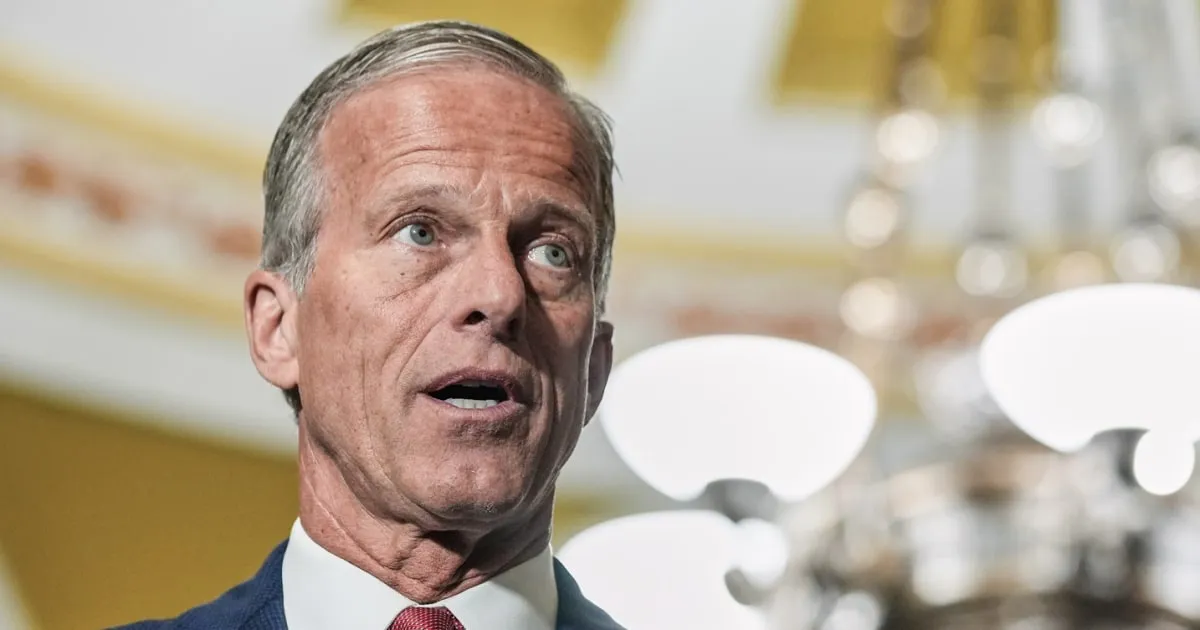
In a significant move, Republicans activated the nuclear option on Thursday, altering the rules of the Senate along party lines. This strategic decision enables the GOP to hasten the confirmation process for key executive branch appointments made by President Donald Trump. With a vote tally of 53-45, the Senate established a new rule allowing for the confirmation of an unlimited number of nominees en bloc, rather than addressing each nominee individually.
The newly established rule applies specifically to executive branch nominees who are subject to two hours of Senate debate, encompassing subcabinet appointments and ambassadors. Notably, this change does not pertain to judicial nominations. While Republicans have indicated they would permit their senators to object to specific nominees within any given block, the framework effectively diminishes the influence of the minority party to do the same.
Senate Majority Leader John Thune of South Dakota initiated the process by proposing a package comprising 48 Trump nominees, which traditionally would be subjected to a 60-vote threshold for advancement. However, due to strong opposition from Democrats, the initial vote to advance these nominees was unsuccessful. Subsequently, Thune sought to reconsider, and Republicans voted to overrule the chair, thereby setting a new legislative precedent.
For weeks, Thune had foreshadowed this decisive move, accusing Democrats of creating a challenging environment through historic obstruction of Trump's nominees. During a passionate speech on the Senate floor, he declared, “It’s time to move. Time to quit stalling. Time to vote. Time to fix this place,” criticizing the current procedural inefficiencies as an embarrassment.
This pivotal vote paves the way for the expedited confirmation of an initial group of 48 Trump nominees, which includes notable figures such as former Rep. Brandon Williams, slated to become undersecretary for nuclear security, and Kimberly Guilfoyle and Callista Gingrich, nominated as ambassadors to Greece and Switzerland, respectively.
In response to the GOP's actions, Senate Minority Leader Chuck Schumer of New York criticized the nominees brought forth by Trump, labeling them as “historically bad.” He expressed concerns that the recent rule change would only exacerbate the situation. Schumer suggested that the Senate seemed to be confirming individuals willing to compromise ethical standards, highlighting a troubling trend in the nomination process.
Thursday's vote represents a substantial alteration to Senate rules, effectively dismantling obstacles that would allow Trump—and future presidents—to swiftly advance their nominees through the legislative process. The method employed by Senate Republicans, known as the nuclear option, is typically avoided due to its controversial nature. However, in recent years, both parties have resorted to it to weaken the power of the Senate minority, notably by eliminating the 60-vote requirement for certain judicial confirmations and reducing debate times for select nominees.
Despite the contentious nature of this decision, House Republicans have closely monitored the situation, advocating for a more efficient confirmation process for Trump’s nominees. Senator Katie Britt of Alabama presented the rules change proposal to a coalition of House Republicans just prior to the Senate vote.
Senator Brian Schatz of Hawaii, who had been instrumental in efforts to reach a bipartisan agreement to avoid invoking the nuclear option, expressed disappointment over the lack of consensus. He acknowledged the failure to achieve unanimity, stating, “It’s a damn shame, and maybe this exercise builds a little muscle memory for at least exploring how to have a bipartisan negotiation.” This sentiment underscores the ongoing challenges within the Senate as it navigates increasingly polarized political waters.